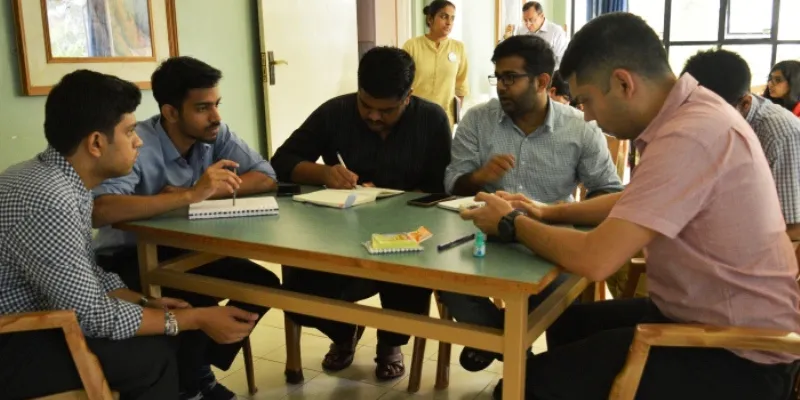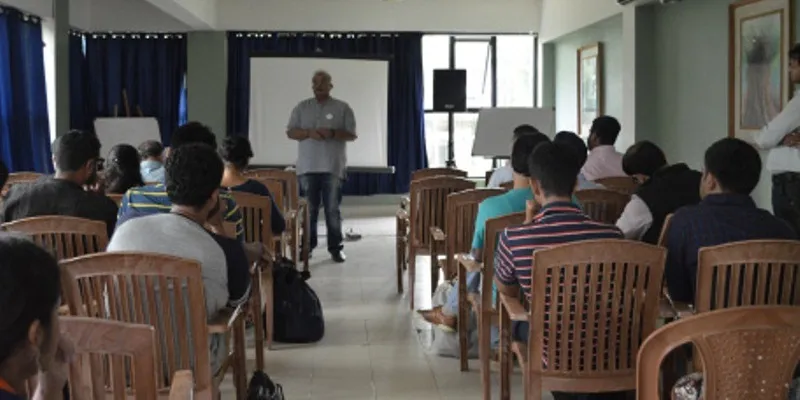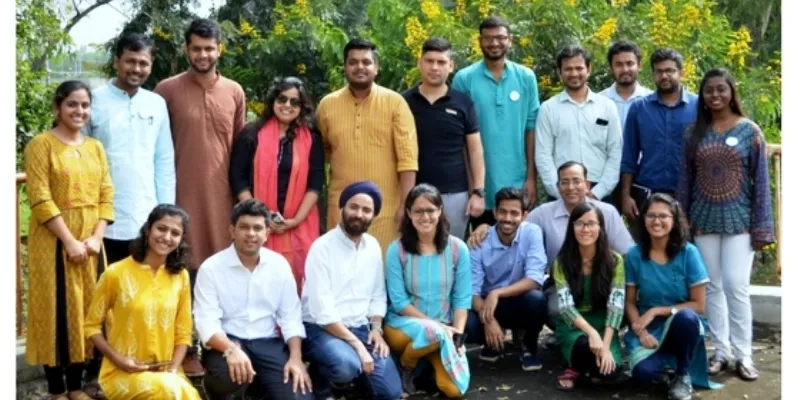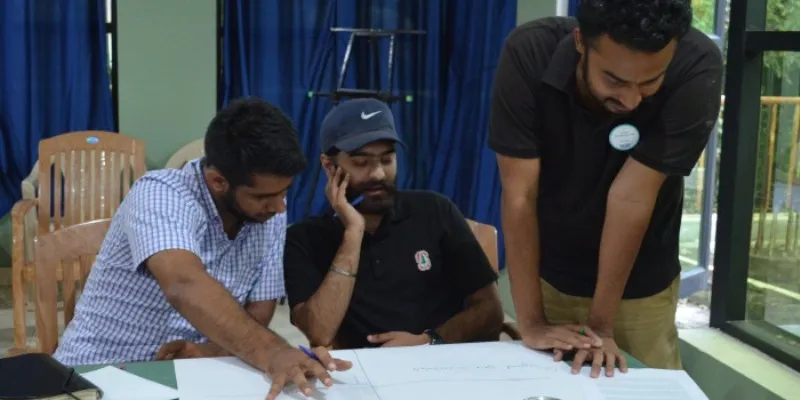This Bengaluru-based organisation is incubating education startups to transform India’s schools
Two educationists set up EduMentum to give education startups a chance to bring about systemic transformation by adopting tailored solutions in schools according to geography.

In recent years, there is a proliferation of startups in the space of education. This is in recognition of the fact that despite India being successful in enrolling children in schools, the learning outcomes are unimpressive, and that an overhaul of our education system is overdue.
While most of these startups have innovative solutions, they lack support, mentorship and financial backing. This is where Bengaluru-based EduMentum comes in – an incubator for early-stage social entrepreneurs working to bring about a systemic transformation in the education system.

Of noble quests
Santosh More and Khushboo Avasthi, founders of the education initiative Mantra4change, have been working in the education ecosystem for close to a decade. They were working on a strategy to transform about 100 schools over five years. However, their mentor, Sanjay Purohit, pushed them to think bigger and aim to transform 10,000 instead of just 100 schools. Instead of working directly with schools, they decided to work with ventures already working in the education sector, thus expanding their reach and impact. Santosh tells us,
“Initially, there were doubts. After some deliberation, the realisation dawned that this meant scaling of the idea and not necessarily the organisation itself. The idea of systemic school transformation needed to scale. The existing structures and processes, and the beliefs, behaviour and capacity of existing stakeholders that form the system need to change.”
Khushboo backs the idea, adding, “While any non-profit can work on creating parallel support structures to the formal system or can create standalone centres of excellence, if one aspires to bring about impact at scale, one has to engage with the existing formal system and related stakeholders - our schools, teachers, government functionaries, community, and the state.”

The change mantra
The team at EduMentum believes that a systemic approach on a large scale is needed to ensure sustainability of change efforts; the solutions however must be local. Santosh puts the problem into perspective,
“India has more than 1.5 million schools spanned across 29 states with huge cultural differences. It clearly means a ‘one-size-fits-all approach is never going to work. This demands contextual solutions to be designed based on the needs of the geography. Who could design contextual solutions better than local change leaders?”
This problem statement was the genesis of the idea behind EduMentum. They set out to enable local change leaders, who understood the context of their geography and were armed with the knowledge and resources to lead successful systemic transformation in education.

The long trek to the summit
Once the vision was in place, like-minded individuals who believed in the power of collaboration joined the long journey as fellow travelers. Bengaluru-based Advait Foundation helped them with mentorship, resources and access to network. After two years of relentless work, Edumentum was born in September 2017, as an incubator for change leaders from non-profit enterprises working to transform education.
Applications were invited from early-stage organisations across India. Fourteen young entrepreneurs from seven organisations were selected to come together as the first cohort. The cohort is created as a community that builds on the shared knowledge and experiences and works towards the shared vision of systemic education transformation.
The organisations that form the cohort work on a range of projects from teacher training, to design of holistic learning models and parent leadership. The first cohort has teams working in Himachal Pradesh, Delhi, Punjab, Bihar, Telangana and Tamil Nadu. The plan is to incubate 50 such organisations over the next five years, across different geographies.
Poonam Shukla, who leads the EduMentum programme, explains the business model, says,
“It is a three-year-long incubation programme that is divided into three parts – Ideate, Prototype and Project. In the first year, the organisation gets support to chalk out a concrete programme design, a seed fund of Rs 7.5 lakh and opportunities to pitch to investors. In the second year, armed with a strong program design, they will be testing their solutions on the ground. The third year is about scaling up the solution.”
While the broad goal is to improve the education system, EduMentum also believes in providing a conducive atmosphere for entrepreneurs and change-makers to flourish. It is through this community of committed and motivated individuals that change is possible on the ground.
Rucha Pandey, who leads programme design and curriculum speaks of the rich experience and invaluable lessons gained through the incubation process:
“EduMentum focuses on four major aspects of entrepreneurship: development of an individual, building contextual solutions, access to rich bodies of knowledge and access to network and funds. In this incubation programme, we have the perfect mix of field and forum support in the form of boot camps and mentoring sessions that help the founders build a strong organisation backed by a rich body of knowledge and guided by experts in the field.”







